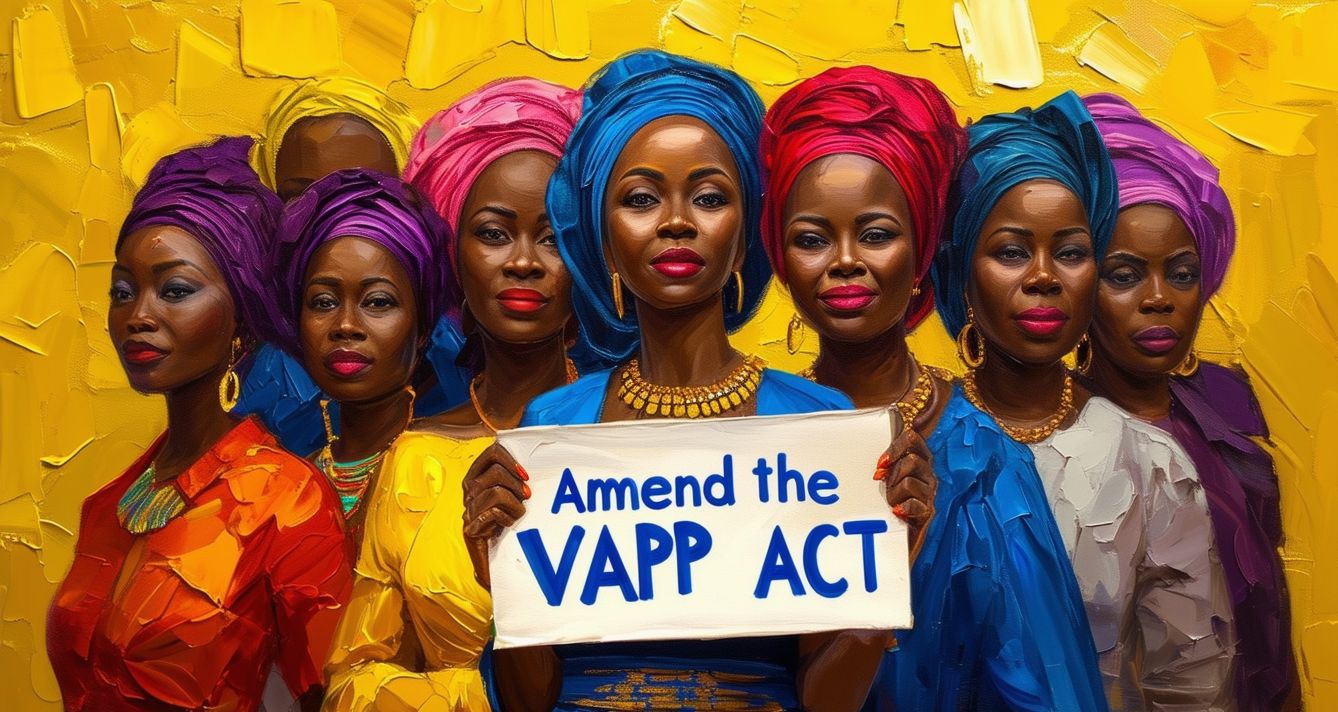Civil society organizations and gender rights activists are raising alarms over a proposed bill to repeal the Violence Against Persons (Prohibition) Act (VAPP) 2015, warning that it could undermine critical protections against sexual and gender-based violence (SGBV).
The new Bill, sponsored by Senator Jibrin Isah and passed for a second reading in the Senate in September 2024, aims to replace the VAPP Act with what is being described as “more robust” legislation. However, activists have expressed concerns over the lack of transparency and consultation during the drafting process, fearing it may reverse key gains in the fight against gender-based violence.
The Nguvu Collective, a women’s leadership organization, is opposing the proposed repeal. It has collaborated with 15 civil society organisations (CSOs) to issue an open letter to Senator Isah.
The letter demands an inclusive and well-publicized public hearing on the Bill to ensure that key stakeholders and the public are meaningfully involved in the review process.
“The current VAPP Act stands as a monumental legal safeguard against violence, especially for women, children, and marginalised groups,” the letter reads in part. “Any changes must prioritise the voices of civil society, human rights defenders, and survivors.”
Some of the organizations involved in the collaborative effort include YIAGA Africa, Dorothy Njemanze Foundation, Connected Development (CODE), Gender Mobile, and TechHerNG. The consortium is united in urging the government to delay the repeal and enactment process until a comprehensive public consultation is conducted.
A Decade of Progress at Risk?
Enacted in 2015 after a decade of advocacy, the VAPP Act was hailed as a milestone in the fight against SGBV in Nigeria. It expanded the definition of rape, criminalised Female Genital Mutilation (FGM), and introduced victim compensation. Over 34 states have adopted the Act, and its provisions have helped break the culture of silence surrounding SGBV in many regions.
Despite the progress, the proposed Bill has sparked fears that these gains could be undone. Priye Diri, Nguvu Change Leader, who launched an online campaign against the Bill, stressed the need for comprehensive input. “We cannot afford to work in silos. Only through collective effort can we achieve a truly impactful and inclusive outcome,” Diri said.
Key Recommendations for the Proposed Bill
The open letter from the CSOs included several recommendations to improve the proposed re-enactment Bill. Among these are:
Replacing the term “victim” with “survivor” in the Bill.
They are expanding the definition of harassment to include Online Gender-Based Violence, rather than limiting it to cyberstalking.
Harmonising the offense of child defilement to cover all girls under the age of 18.
Replacing the phrase “mental disorder” with “mental disabilities” in line with contemporary standards.
Setting minimum penalties, allows judges to exercise discretion in imposing maximum penalties.
The letter also notes the absence of a schedule for the proposed Bill and urges that one be attached for clarity.
A Call for Transparency
The consortium’s message is clear: Nigeria cannot afford to roll back the progress made in protecting women’s rights. “A holistic reform of this legislation would enhance our obligations to protect women while restating our leadership on human rights,” the signatories conclude.
As the debate continues, all eyes are on the Senate to determine whether this critical legislation will be refined to reflect the needs of those it aims to protect.

